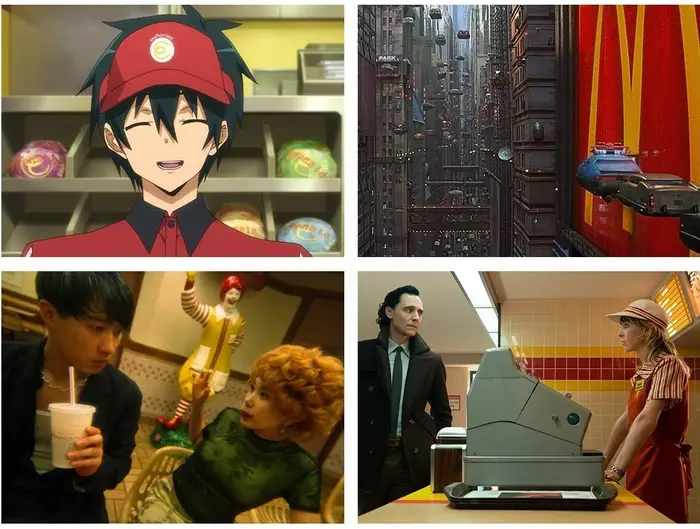McDonald’s has always been more than fast food — it’s a cultural cameo. From Seinfeld punchlines to futuristic sci-fi scenes in The Fifth Element, the Golden Arches keep popping up on our screens.
In 2025, McDonald’s turned those background cameos into the spotlight with its “As Featured In” campaign — a global rollout across 100+ countries featuring billboards, limited meals, exclusive merch, and even an AR Snapchat lens.
🪧 The Campaign Setup
Instead of glossy burger shots, McDonald’s plastered billboards with simple movie callouts:
- “As Featured In Loki”
- “As Featured In The Fifth Element”
- “As Featured In Seinfeld”
The copy was minimal. The strategy was bold: let culture do the selling.
At the same time, McDonald’s launched the “As Featured In Meal”, a combo tied to these cinematic moments. Fans could even scan packaging for an AR filter, turning fries into special effects.

💡 Why It Worked
- Borrowed credibility: Hollywood had already made McDonald’s iconic. The brand just repackaged that proof.
- Nostalgia unlock: People remembered that scene — whether it was sci-fi, sitcom, or superhero.
- Fandom stacking: Each billboard spoke to a different tribe (Marvel stans, retro TV lovers, 90s kids).
🧠 Strategy Lesson
This campaign wasn’t about food photography. It was about owning the role McDonald’s already played in culture.
Instead of inventing a story, they asked:
👉 Where has our brand already starred?
👉 How can we remind people of those moments?
For smaller brands, the lesson is clear:
- Your product probably already shows up in customer photos, YouTube vlogs, or niche communities.
- Instead of forcing a new idea, elevate the cameos you already have.
🌍 Cultural Impact
The campaign trended on Instagram and X (Twitter), generating millions of shares. TikTok users stitched famous McDonald’s movie clips with real-time shots of the billboards. And in pure McDonald’s style, the brand dropped exclusive merch collabs with Palace and Cactus Plant Flea Market, turning nostalgia into streetwear hype.
🔑 Takeaway
Great campaigns don’t always invent relevance — they borrow it from culture and remind us it was always there.
